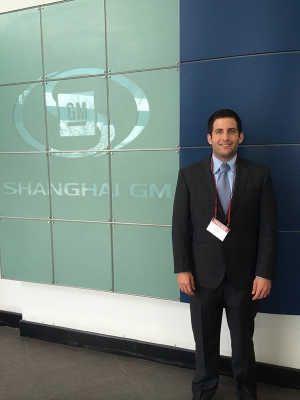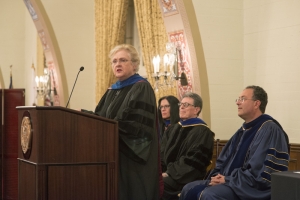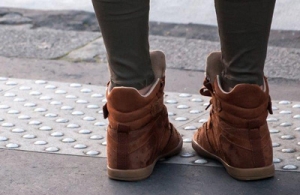News Archive
-

Graduate students at the USC School of Social Work and the USC Price School of Public Policy organized the Students of Color and Allies Policy Forum to engage in collaborative and constructive discussions on race and social justice.
-

Growing up under Jim Crow laws in the South, Frances Caple felt she had to find a way to help the most vulnerable and disenfranchised individuals in society.
She got that opportunity at the USC School of Social Work, where she helped build one of the largest and most successful training programs for school social workers, ensuring that hundreds of students graduated with the skills necessary to address critical challenges in the public school system.
-

In recent years, the USC School of Social Work has worked in close partnership with a cross section of Los Angeles County agencies that impact child well-being, strongly encouraging collaboration and use of evidence-based research to improve outcomes for children. Because of this collaboration – with USC and other university partners in the region – Los Angeles County has been able to initiate often-time difficult changes and improvements to the child welfare system. Having research to implement change was a key factor.
-

Stealing snacks from the corner store. Spray-painting tags on public property. Vandalizing cars.
What’s a parent to do?
-

A multidisciplinary team of graduate students representing the USC School of Social Work, USC Marshall School of Business and the Keck School of Medicine of USC won the fourth annual USC Global Health Case Competition.
Jay Lytton, MSW/MBA candidate; Mitch Otu, MD/MBA candidate; Amy Patel, MBA candidate; Edwin Kulubya, MD/MBA candidate; and Fereshte (Nina) Kharazmi, MPH candidate, comprised the winning team.
-

A new research project will explore the effectiveness of a popular suicide hotline for lesbian, gay, bisexual, transgender and questioning (LGBTQ) youths and provide guidance on how to enhance its services.
Led by Assistant Professor Jeremy Goldbach from the USC School of Social Work, the one-year $168,000 initiative will evaluate the Trevor Project, which offers a crisis hotline and chat and text messaging services to young LGBTQ individuals who are contemplating suicide.
-

The USC School of Social Work recently installed four faculty members, including Dean Marilyn Flynn to an endowed chair, and Ron Avi Astor, William Vega and Suzanne Wenzel to named professorships, establishing a connection between research and philanthropy that honors both scholarship and a donor’s vision.
“An endowed professorship in social work is among the most powerful ways to demonstrate a basic faith in humanity – and the incredible value of people working to help other people,” said Michael Quick, interim USC provost, at the installation event at Town and Gown March 10.
-

The Children’s Data Network has announced the release of a new report, Transition-Age Youth and the Child Protection System: Demographic and Case Characteristics. Funded by the Conrad N.
-

-

When the May and Stanley Smith Charitable Trust was deciding its most recent funding focus, it considered areas and organizations that would have the most impact.
Recognizing the far-reaching effects and value of trained military social workers, the trust awarded a $500,000 25th Anniversary Grant to the USC School of Social Work for scholarship support for veterans and military families.